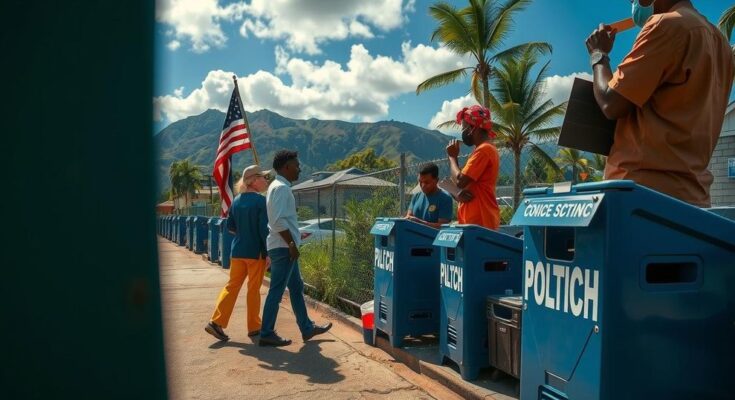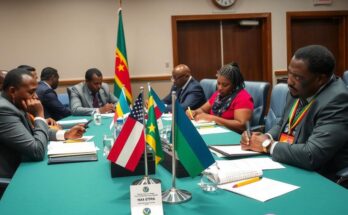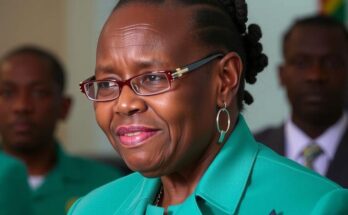Mauritius held parliamentary elections on Sunday amid a phone-tapping scandal that raised concerns over democratic integrity. The country recently celebrated a sovereignty agreement over the Chagos Islands, yet the electoral atmosphere was marred by leaked recordings and a brief social media ban. Both main political parties claimed confidence in victory, while observers noted a 70% voter turnout.
On Sunday, Mauritius conducted its parliamentary elections amid controversies stemming from a phone-tapping scandal, which has raised questions regarding the integrity of the electoral process. This election is pivotal for maintaining economic and political stability in the Indian Ocean nation, known for its democratic governance and relative prosperity. This electoral event followed a significant diplomatic achievement in which Britain transferred sovereignty of the Chagos Islands to Mauritius, ending a long-standing dispute. However, Prime Minister Pravind Jugnauth’s campaign faced serious setbacks after leaked recordings of conversations involving politicians and journalists stirred public outrage. Authorities attempted to mitigate the situation by imposing a social media ban, which they later rescinded in the face of widespread criticism. The contest for control of the 70-seat National Assembly is primarily between Jugnauth’s Militant Socialist Movement and the Alliance of Change, led by former prime minister Navin Ramgoolam. With a voter turnout reported at 70 percent as polls closed, both parties expressed confidence in their anticipated victories, promising to tackle poverty and the high cost of living. Reported incidents of fraud were raised, yet overall, the voting process proceeded without significant disturbances. Political stability remains a major concern for the electorate, particularly as Mauritius grapples with economic challenges and increasing governance issues. Analysts note that the country’s institutions intended to uphold checks and balances have weakened, contributing to rising corruption levels, notably during the previous administration. Leadership in Mauritius has remained largely within three familial dynasties since gaining independence, positioning Jugnauth and Ramgoolam as central figures in the electoral landscape. The recent agreement over the Chagos Islands was celebrated by Jugnauth as a step towards decolonization, though some worry about its implications for bilateral relations with the US amid global geopolitical shifts.
Mauritius, a prominent democracy in Africa, operates under a parliamentary system and has seen significant economic growth since its independence from British rule in 1968. While it has a strong record on civil liberties, the recent phone-tapping scandal and subsequent social media ban highlight potential erosions of democratic norms. The Chagos Islands agreement marked a diplomatic milestone, yet the interplay between governance issues and political stability remains crucial as the nation heads to the polls.
In summary, the parliamentary elections in Mauritius unfolded against a backdrop of significant political controversy and socio-economic concerns. Despite a history of stability and growth, the current climate of political discord, highlighted by corruption allegations and social media restrictions, presents challenges for the future governance of the nation. As results are anticipated, the implications of this election will shape Mauritius’s political landscape moving forward.
Original Source: www.guampdn.com




